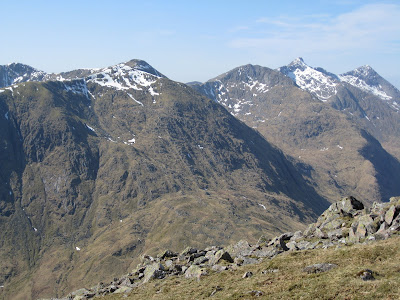 |
| CCB on BBC debate |
I watched PM's question time live today for the first time and witnessed the frenetic nonsense that seems endemic with any election. After being a returning officer for 15 elections over the past 14 years it is a relief not to be responsible for this election, which seems to be mired by empty rhetoric. Instead, I can reflect on the candidates and politics.
The first thing to say is that it will be a very different election than in 1997 when the mood of the country was for positive change and the turnout reflected this, we managed 81% in my constituency. There was an underlying optimism about politics and Blair rode the zeitgeist with gusto. 13 years later the Labour Party is tarnished by the expenses scandal involving a couple of ministers as well as the recession following the banking crisis. They failed to tackle the first, so Geoff Hoon and Steven Byers have become the despised, symbolic image of MPs whose greed was greater than their principles. But Labour also spun itself into a frenzy about lots of meaningless issues and failed to provide the leadership or take some of the tough decisions that are the hallmark of any successful government. The years of bickering between Blair and Brown and the reaction against the Iraq war have not played well.
They let the crazy rail privatisation continue, encouraged the finance sector to implode in its own unchecked avarice, and sacrificed the UN and other international bodies for a decade of deals to keep in with the USA on foreign policy issues such as Iraq, Sudan, Afghanistan and whatever comes next. Blair endorsed the celebrity culture and was duped by business, Bush and Murdoch into letting the economy rip and rewarding the most affluent. They continued to waste money on Trident and two aircraft carriers to be built in Gordon Brown's constituency. They inexplicably supported a third runway at Heathrow that defies any climate change policies. They allowed the manufacturing sector to almost disappear or be sold off to foreign companies or hedge funds. They created a big, centralised government that is the antithesis of the open, transparent and collaborative public policymaking that we require. And they showed little or no trust in localism or faith in public services that provide the social and physical infrastructure for the country.
OK, so they introduced the minimum wage, increased international aid and invested heavily in schools and health but even that was made far more expensive than it could have been by the extensive use of Private Finance deals. The NHS is in better shape than I can ever remember. The UK has been supportive and effective in the European Union and has played an important role in world affairs and Gordon Brown was instrumental in shaping a global response to the banking crisis. Despite these achievements. it is a blemished CV and the government looks tired and lacking in a vision that will win over voters.
So what of the alternatives? Well, the Tories seem bankrupt of any ideas and all the energy and carefully honed presentation skills of David Cameron are spent on showing that he is not Gordon Brown. After 13 years in the wilderness, you would have thought that they had some policies other than not putting up National Insurance. What they would do is left for us to speculate but watching William Hague and George Osborne reminds me of Mr Burns in the Simpsons. They are for austerity and tax reductions with no empathy for the underprivileged. LibDem leader, Nick Clegg, is prancing around the country with Vince Cable, the housewife's favourite, but even their four priorities seem remarkably lacking in imagination or innovation. 'Trust us, we are not them' is the unwritten tagline for the LibDem campaign. The BNP and UKIP are a comedy of errors and the ScotNats are gathering nuts in May and hoping that a hung parliament will fetch them into a power-broking role and possibly the chance to secure an independence referendum.
So how or should we vote? Maybe we need a new system of democracy based upon our (the voters') values and priorities, not the democracy of despair that the parties are acting out in the tired, antagonistic theatre of politics that we are obliged to watch. Political parties seem to be driven more by lobbyists and financial backers than their membership and supporters. Scrutiny and transparency are the essence of a pure democracy but these values are eschewed by the malign influence of the lobbyists who are more concerned about their narrow advantage than the well-being of the nation. The mother of parliaments has acquired some nasty habits and should be examining ways in which it can provide some moral and ethical leadership in the troubled times ahead. Like many others, I know who I won't be voting for but wish that there was a party that recognised that our governance systems are broken and promised to give us a constitution fit for the twenty-first century.












